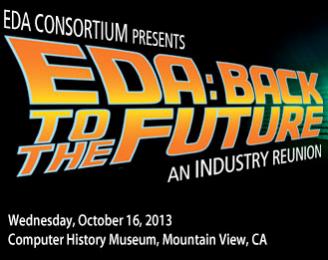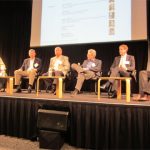The global semiconductor industry stands at a defining moment in its history. Having surpassed $600 billion in annual revenue, the path to a $1 trillion market is no longer a distant dream but an achievable milestone within the next decade. The annual 2025 Semi Industry Forum, organized by Silicon Catalyst, brings together the… Read More
Tag: computer history museum
REUSE 2016 is Next Week at the Computer History Museum!
The first REUSE Semiconductor IP Tradeshow and Conference is next week at the Computer History Museum in Mountain View, CA. Given the importance of IP I would strongly suggest attending this event. The presentation abstracts are up now and there are a few I want to highlight as they are companies that we work with on SemiWiki:
HBM2… Read More
Next SemiWiki Book Signing Event: MIPI DEVCON!
This is the first MIPI DEVCOM event and the location is my favorite, the Computer Museum in Silicon Valley. For those of you who haven’t been, the Computer Museum preserves and presents for posterity the artifacts and stories of the information age, an age we all grew up in. For those of you who have been to the Computer Museum there … Read More
SEMI SMC: Atoms Still Don’t Scale
Last Tuesday was the SEMI’s annual Strategic Materials Conference (SMC). The opening keynotes were given by Gary Patton, the CTO of GlobalFoundries, and Mark Thirsk, Managing Partner of Linx Consulting. This year it was held in the Computer History Museum (which always makes the commute interesting since you have to fight… Read More
Back To The Future: 50th Anniversary of EDA
October 16[SUP]th[/SUP] at the Computer History Museum, EDAC is hosting EDA: Back to the Future to celebrate 50 years of EDA. EDAC always has a fall event of some sort and historically it has been the Kaufman Award Dinner. This year, the Kaufman Award was presented (to Chenming Hu) at 50[SUP]th[/SUP] DAC, so the fall EDAC calendar… Read More
GSA Entrepreneurship: Getting Money In and Out
This afternoon and evening I was at GSA’s entrepreneurship conference at the Computer History Museum. The first two panel sessions were essentially on getting money into companies to get them started (or growing them), and getting money out when you have built the business.
The first session was officially titled Fueling… Read More




